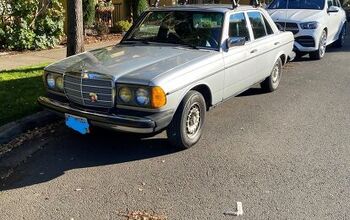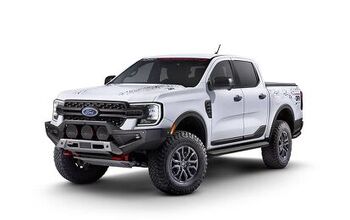Who's On First? Toyota? VW? Or, Gasp, GM?

Volkswagen wants to unseat Toyota as number one by 2018. When they announced that strategy, it was widely discounted as Wolfsburg hubris, and as a goal so far out that nobody will recall nine years down the road that the goal has ever been set. Or as the saying goes in Wolfsburg: “In 2018, I’ll be retired.”
A few days ago, The Guardian reported that in the first 9 months of 2009, Volkswagen/Porsche made 4.4 million cars whereas Toyota made 4 million. Which ignited speculations that VeeDub may have reached its elusive goal 9 years early. Then the usual count of apples and oranges ensued, and after the joint ventures with minority stakes were included, Toyota nosed ahead.
Everybody calm down. Volkswagen is years away from overtaking Toyota, reports Das Autohaus. Surprise, surprise, arch rival GM is nipping at Toyota’s heels.
The battlefield where most of this is fought is China. GM grows faster in China than Volkswagen, both grow much faster in China than Toyota. According to Bratzel, Toyota lost more in the USA than GM. However, data by Automotive News [sub] don’t support that claim. Automotive News says that in the first ten months of 2009, Toyota was down 26 percent in the US, while GM shed 34 percent. Today, the Nikkei [sub] reports that in October, Toyota posted its first year-on-year global sales growth in 15 months. According to the Nikkei “North American sales were essentially flat from a year earlier.” Oh yeah?
Are we confused yet? Didn’t we hear that GM had long been kicked off the #2 podium? Hasn’t Veedub been feted as #2 for most of the year? Guess we’ll have to wait for the good folks at OICA for the definitive word. Which will take a while.

Bertel Schmitt comes back to journalism after taking a 35 year break in advertising and marketing. He ran and owned advertising agencies in Duesseldorf, Germany, and New York City. Volkswagen A.G. was Bertel's most important corporate account. Schmitt's advertising and marketing career touched many corners of the industry with a special focus on automotive products and services. Since 2004, he lives in Japan and China with his wife <a href="http://www.tomokoandbertel.com"> Tomoko </a>. Bertel Schmitt is a founding board member of the <a href="http://www.offshoresuperseries.com"> Offshore Super Series </a>, an American offshore powerboat racing organization. He is co-owner of the racing team Typhoon.
More by Bertel Schmitt
Latest Car Reviews
Read moreLatest Product Reviews
Read moreRecent Comments
- W Conrad I'm not afraid of them, but they aren't needed for everyone or everywhere. Long haul and highway driving sure, but in the city, nope.
- Jalop1991 In a manner similar to PHEV being the correct answer, I declare RPVs to be the correct answer here.We're doing it with certain aircraft; why not with cars on the ground, using hardware and tools like Telsa's "FSD" or GM's "SuperCruise" as the base?Take the local Uber driver out of the car, and put him in a professional centralized environment from where he drives me around. The system and the individual car can have awareness as well as gates, but he's responsible for the driving.Put the tech into my car, and let me buy it as needed. I need someone else to drive me home; hit the button and voila, I've hired a driver for the moment. I don't want to drive 11 hours to my vacation spot; hire the remote pilot for that. When I get there, I have my car and he's still at his normal location, piloting cars for other people.The system would allow for driver rest period, like what's required for truckers, so I might end up with multiple people driving me to the coast. I don't care. And they don't have to be physically with me, therefore they can be way cheaper.Charge taxi-type per-mile rates. For long drives, offer per-trip rates. Offer subscriptions, including miles/hours. Whatever.(And for grins, dress the remote pilots all as Johnnie.)Start this out with big rigs. Take the trucker away from the long haul driving, and let him be there for emergencies and the short haul parts of the trip.And in a manner similar to PHEVs being discredited, I fully expect to be razzed for this brilliant idea (not unlike how Alan Kay wasn't recognized until many many years later for his Dynabook vision).
- B-BodyBuick84 Not afraid of AV's as I highly doubt they will ever be %100 viable for our roads. Stop-and-go downtown city or rush hour highway traffic? I can see that, but otherwise there's simply too many variables. Bad weather conditions, faded road lines or markings, reflective surfaces with glare, etc. There's also the issue of cultural norms. About a decade ago there was actually an online test called 'The Morality Machine' one could do online where you were in control of an AV and choose what action to take when a crash was inevitable. I think something like 2.5 million people across the world participated? For example, do you hit and most likely kill the elderly couple strolling across the crosswalk or crash the vehicle into a cement barrier and almost certainly cause the death of the vehicle occupants? What if it's a parent and child? In N. America 98% of people choose to hit the elderly couple and save themselves while in Asia, the exact opposite happened where 98% choose to hit the parent and child. Why? Cultural differences. Asia puts a lot of emphasis on respecting their elderly while N. America has a culture of 'save/ protect the children'. Are these AV's going to respect that culture? Is a VW Jetta or Buick Envision AV going to have different programming depending on whether it's sold in Canada or Taiwan? how's that going to effect legislation and legal battles when a crash inevitibly does happen? These are the true barriers to mass AV adoption, and in the 10 years since that test came out, there has been zero answers or progress on this matter. So no, I'm not afraid of AV's simply because with the exception of a few specific situations, most avenues are going to prove to be a dead-end for automakers.
- Mike Bradley Autonomous cars were developed in Silicon Valley. For new products there, the standard business plan is to put a barely-functioning product on the market right away and wait for the early-adopter customers to find the flaws. That's exactly what's happened. Detroit's plan is pretty much the opposite, but Detroit isn't developing this product. That's why dealers, for instance, haven't been trained in the cars.
- Dartman https://apnews.com/article/artificial-intelligence-fighter-jets-air-force-6a1100c96a73ca9b7f41cbd6a2753fdaAutonomous/Ai is here now. The question is implementation and acceptance.


































Comments
Join the conversation
Who really cares who is number one in total vehicles sold? Going after goals like this instead of being profitable is only going to hurt. Just ask GM.
Actually, whoever penned the "Strategy 2018" for VW had listened to the requests voiced here. Not only does VW want to leave Toyota in the dust in unit sales. But also in terms of innovation, customer satisfaction, and profitability. There you have it. Good luck with that.